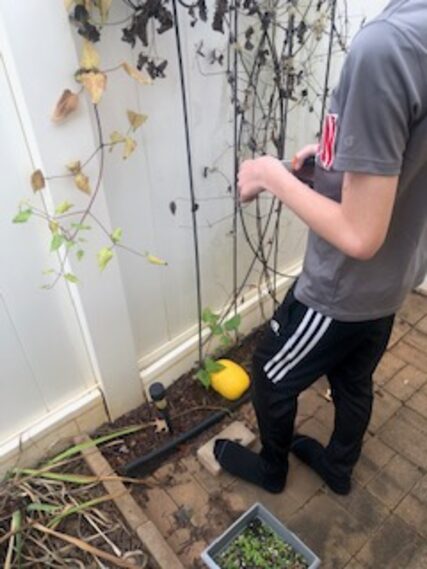School gardens teach students the importance of living things. They learn to care for a living, breathing ecosystem. Caring for a garden builds skills. Gardening also builds a student’s immune system. Research shows that getting dirty fortifies the health and balance of the immune system.
Gardens that contain pollinators and vegetables encourage students to eat healthily. Thus, eating healthy improves a student’s academic success. It’s proven that access to healthy food improves diet. Therefore, a school garden gives students an actual look at how food grows. They learn how to grow, nurture, and harvest plants for food. Gardens provide hands-on learning that builds an understanding of nutrition. Maintaining a garden opens students’ minds to trying healthy new dishes.
School Gardens Grow Skills
A focus on building skills connects students to the school cafeteria, local supermarket, and home kitchen. Students learn how to inspect fruits and vegetables for freshness. They also learn how to clean and cook the products they grow.
Science and math lessons can focus on soil type and plotting a piece of land needed for the garden. In social studies, students learn which plants grow best in their area. Health lessons revolve around the food chain, the food pyramid, and health.
The Best Reasons
Some of the best reasons for a school garden is students get to spend time outside.
- They learn responsibility.
- They learn real-life, practical skills.
- Students develop social habits and teamwork.
- They learn to appreciate the world around them.
Schools not only have gardens to focus on growing vegetables, but they also have gardens for the beautification of the grounds.
There are many types of gardens for students to grow, such as flowers, herbs, vegetables, pollinators, butterflies, native plants, and fruit trees. All of which benefit student learning.
School gardens are a benefit to students and teachers. They provide a place for an outside learning classroom that connects to the natural world. They develop cognitive and emotional expertise. According to the American Federation of Teachers (AFT), gardens improve test scores, build cognitive skills, build retention, critical thinking skills, and comprehension. They also create an interest in learning.
Gardens and Climate Change
Plants and trees take in carbon and release oxygen. Plus, the roots of plants stabilize soil and filter water. They give students skills that support ecological balance. Thus, they prepare students for a sustainable world help prepare student for climate change. School gardens contribute to help students understand the natural world.
School gardens have been around for many years. It’s time to plant a garden and watch how students love to see plants grow.



